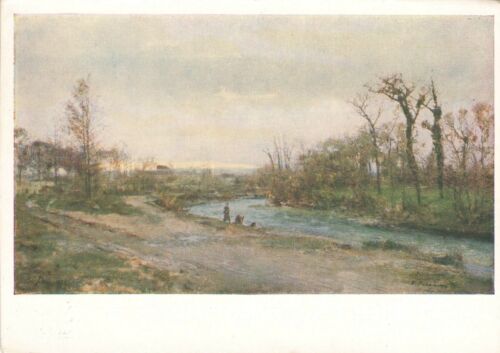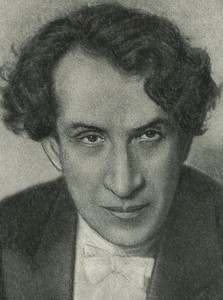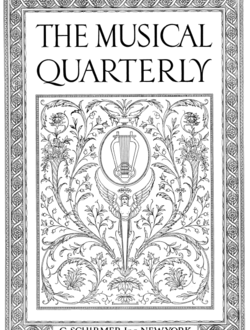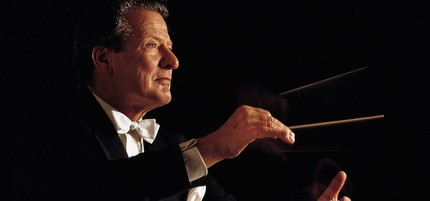
Daniil Ilyich Pokhitonov |
Daniil Pokhitonov
People’s Artist of the RSFSR (1957). The history of the Mariinsky Theater (the Kirov Opera and Ballet Theatre) is inseparable from the name of Pokhitonov. For more than half a century he worked in this cradle of the Russian musical theater, being a full partner of the largest vocalists. Pokhitonov came here after graduating from the St. Petersburg Conservatory (1905), where his teachers were A. Lyadov, N. Rimsky-Korsakov, A. Glazunov. The beginning was modest – he received an excellent school in the theater, working first as a pianist-accompanist, and then as a choirmaster.
The usual case brought him to the control panel of the Mariinsky Theater: F. Blumenfeld fell ill, it was necessary to stage a performance instead of him. This happened in 1909 – Rimsky-Korsakov’s The Snow Maiden became his debut. Napravnik himself blessed Pokhitonov as a conductor. Every year the artist’s repertoire included new works. The main share was played by Russian opera classics: The Queen of Spades, Dubrovsky, Eugene Onegin, The Tale of Tsar Saltan.
An important role in the creative development of the musician was played by a tour performance in Moscow, where in 1912 he conducted Khovanshchina with the participation of Chaliapin. The brilliant singer was very pleased with the work of the conductor and later sang with pleasure in productions directed by Pokhitonov. The list of “Chaliapin” performances by Pokhitonov is very extensive: “Boris Godunov”, “Pskovite”, “Mermaid”, “Judith”, “Enemy Force”, “Mozart and Salieri”, “The Barber of Seville”. Let us also add that Pyukhitonov took part in the tour of the Russian opera in Paris and London (1913) as a choirmaster. Chaliapin sang here in “Boris Godunov”, “Khovanshchina” and “Pskovityanka”. Pokhitonov was the great singer’s partner when the Pisishchiy Amur firm made several recordings of Chaliapin.
Many singers, among them L. Sobinov, I. Ershov, I. Alchevsky, have always carefully listened to the advice of an experienced accompanist and conductor. And this is understandable: Pokhitonov subtly understood the peculiarities of vocal art. He sensitively followed every intention of the soloist, giving him the necessary freedom of creative action. As contemporaries note, he “knew how to die as a singer” for the sake of the success of the performance as a whole. Perhaps his interpretive concepts lacked originality or scope, but all the performances were held at a high artistic level and were distinguished by exacting taste. “A connoisseur of his craft, an experienced professional,” writes V. Bogdanov-Berezovsky, “Pokhitonov was impeccable in terms of the accuracy of reproducing the score. But his adherence to traditions had the character of unconditional submission to someone else’s authority.
The Kirov Theater owes many of its successes to Pokhitonov. In addition to Russian operas, he directed, of course, performances of the foreign repertoire. Already in Soviet times, Pokhitonov also worked fruitfully at the Maly Opera Theater (1918-1932), performed with symphony concerts, and taught at the Leningrad Conservatory.
Lit .: Pokhitonov D. I. “From the Past of Russian Opera”. L., 1949.
L. Grigoriev, J. Platek





